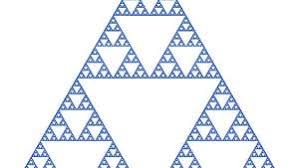A Few Thoughts About Triads
Ordinarily—that is, in the second state—our machines function on the basis of stimulus and response. This means that some stimulus is the first force for our actions. The stimulus initiates the action, while our reactions to it are the second force. The third force determining the nature of the reaction comes from our mechanicality: chief feature, type, and so on.
When we we are observing ourselves, however, our work introduces a new triad. In this triad, the work is the first force and mechanicality is the second force. The observer (and eventually the steward and then higher centers) is the third force. This represents the process of regeneration, in which the form provided by the Work acts on the matter of the machine with a third force stemming from consciousness.
Observation as a New Third Force
The process of observation becomes a new third force in the mechanical triad of stimulus-response. The first force is still the stimulus, and the second force is still the machine responding to that stimulus. But the process of observation becomes the third force. And with this, we see the habits and attitudes that were acting as third force as part of the machine; that is, as part of the second force. Of course, these habits and attitudes are still present in the machine, but when we separate from them, they no longer determine what happens. Instead, they take their place as part of the mechanics of the moment, like the movements of our bodies or the sounds of our voices. This, in turn, leaves space for different responses. Thus, the new third force leads to new results and a miracle occurs.
About Triads and the Illusion of Doing
In some writings about the Fourth Way, the words used are ‘active’ for the first force, ‘passive’ and ‘denying’ for the second force, and ‘neutralizing’ for the third force.
It is not that there is anything wrong with this; yet this terminology tends to promote the illusion of doing. This happens because we identify with the activity of the machine’s response to the stimulus, and so think of ourselves as the ‘active’ element in the triad, the element that ‘does’ something. Indeed, this activity can so mesmerize us that we cannot understand that when we react mechanically we actually ‘do’ nothing, no matter how clever or complex our actions may be.
Examples of Triads: The Processes of Digestion, or Refinement
Examples may make this more clear. One of the most obvious comes from the process of digestion. Here, the presence of a piece of food—on the plate, then in the mouth, and finally in the digestive tract—initiates a sequence of very complex actions on the part of the machine, to the point that it makes almost no sense to think of the food as ‘active’ and ourselves as ‘passive’.
Another example is in the case of the refinement of a design over time; say, that of an automobile. No one ever sat down and invented an automobile from thin air. What happened was that the presence of certain impressions in the environment (say, that of a carburetor on an engine) stimulated someone’s intellectual part of the moving center to make a small improvement (to make a slightly better carburetor). Yet can we seriously think of the inventor as the passive force in the triad? Or, for that matter, of myself as passive in writing these thoughts?
Thus, while ‘active’, ‘passive’, and ‘neutralizing’ may be appropriate for some triads, I prefer to use the terms first, second, and third force. If we are going to think of something as being an active force, let it be the effort to separate and observe, not something connected with doing or changing anything.
Real Doing is about Third Force
Simply to observe. By being the first force in that triad, we initiate the process of regeneration. This then becomes the third force at the lower levels where the triads of sleep occur. As Mr. Ouspensky said, real doing begins with third force. Here we see one place to begin.
About Girard Haven
Girard Haven is a noted author of books on the Fourth Way and has written of his half-century of work with students in the Fellowship of Friends. His Facebook page includes more of his writing: Girard Haven – The Prize is Eternity, as well as his books on Amazon. For other articles of Girard’s in the FourthWayToday.org archives, see: https://fourthwaytoday.org/author/girard-haven/.
